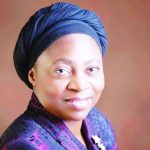
As Nigeria celebrates its 64th Independence Anniversary today, the leadership of the Nigeria Medical Association has said that the progress in the health sector since independence has been marred by poor remuneration, outdated equipment and migration of health professionals.
While acknowledging the sector’s resilience amid these challenges, the doctors expressed concerns about how long the current momentum could continue without prompt action.
The association called for urgent practicable interventions to retain health workers by implementing better remuneration, increased security and improved access to modern diagnostic and treatment equipment.
In the last five years, about 16,000 doctors left the country’s shores, the Coordinating Minister of Health and Social Welfare, Prof Ali Pate stated in March.
He noted that of the 300,000 health professionals in the country, 90,000 of them were registered doctors but of this number, only 55,000 licensed doctors remained in the country.
The don also said that over 75 per cent of Nigerian-trained health workers have left the country for opportunities abroad.
Pate described the health sector as “barely managing,” stating that the government was beginning to take steps to “expand training and work environment.”
But while the government was focusing on training new medical professionals, notable experts in the sector have said that it would take the country 20 years to produce enough health workers needed to fill in the void and attend to the health needs of the citizens.
To further address the human capital challenges of the health sector, President Bola Tinubu in August implemented the National Policy on Health Workforce Migration to reverse the japa syndrome.
Meanwhile, in an assessment of the health sector, the NMA President, Prof Bala Audu, noted that despite producing skilled healthcare professionals for both Nigeria and the global community since independence, the sector continued to face significant challenges.
In an exclusive interview with PUNCH Healthwise, he mentioned that the country’s economic situation largely impacted the health sector’s performance.
Audu said, “We have also done a lot in the field of medical research that has impacted humanity. But like any part of the world, as we grow, we have our challenges. However, if we look at it, the greater challenges we face in the health sector are also directly related to the challenges of our economy.”
The NMA president further emphasised that equipping hospitals with modern infrastructure had become a major challenge due to high costs, along with the burden of maintaining and repairing outdated equipment.
However, he stressed that the most critical issue was the shortage of highly skilled professionals, many of whom have left the country for various reasons.
“I think our greatest and saddest moments are those where we see a significant proportion of our highly skilled health professionals across all age brackets leaving this country to go and practice in other countries, for many reasons that we believe can be solved in this country.
“But I think by and large, looking at the entire performance of the country as a nation, I think the health sector remains one of those sectors that has stood the test of time. But for how long we can maintain this, I think it’s something that requires a lot of input from government and the private sector, as well as individual practising professionals,” Audu said.
Proffering solutions to the challenges, the NMA president reiterated that the combination of a well-equipped work environment, adequate security for life and property and proper remuneration was important to retain healthcare workers.
“If we have those things in place, that is to say, you have the combination of a work environment where you have complete facilities, where there is good security, where there is respect for both staff and patients and where people can walk in and get access to quality health care that is affordable. The third is security for life and property.
“But all these three key factors are predicated around adequate funding and commitment to utilise such funds effectively,” the doctor said.
He urged Nigerians to remain patriotic and contribute their quota to making the country “among the greatest in the world.”
On his part, the Lagos State NMA Chairman, Dr Saheed Babajide, stated there has been a reduction in the previous progress made in the health sector in the past eight years.
He noted that while the japa syndrome among health workers increased, the rise in the prices of drugs had made treatment difficult for the populace, making them resort to traditional medicine.
Babajide decried the poor remuneration of health professionals and hospital closures, further describing the health sector as “going down.”
“The health sector has not improved. The leadership and authority in charge of the health sector in Nigeria, and states, have failed woefully in improving the health sector. The president should, in the same way he rejigged the economy, rejig the health sector. The president should look for those that have the home knowledge, not abroad knowledge, to meet the health sector needs in Nigeria, if we want to move forward,” the Lagos NMA chair said.
Babajide called on the president to reduce or eradicate the Japa syndrome by increasing the remuneration of healthcare workers in line with the current economic situation of the country.
He advocated the implementation of non-taxable call duty allowances and welfare packages such as housing and car loans, further calling for the training and retraining of doctors in administrative and professional courses.
The doctor said, “Increase budgetary allocations to the health sector. Establishment of comprehensive specific speciality centres in the geopolitical zones of the country i.e. construction of General Surgery centres, Paediatric centres, Plastic Surgery centres, Obstetrics & Gynaecology centres, Internal Medicine centres, Renal centres, Cardiac centres etc to reduce medical tourism.
“Establishment of Infection Disease Hospitals in each geopolitical zone and later in each of the states, improvement in National Health Insurance Scheme to ensure better, extensive and effective Universal Health Coverage and a reduction in the cost of pharmaceutical drugs, medical instruments and equipment.”



